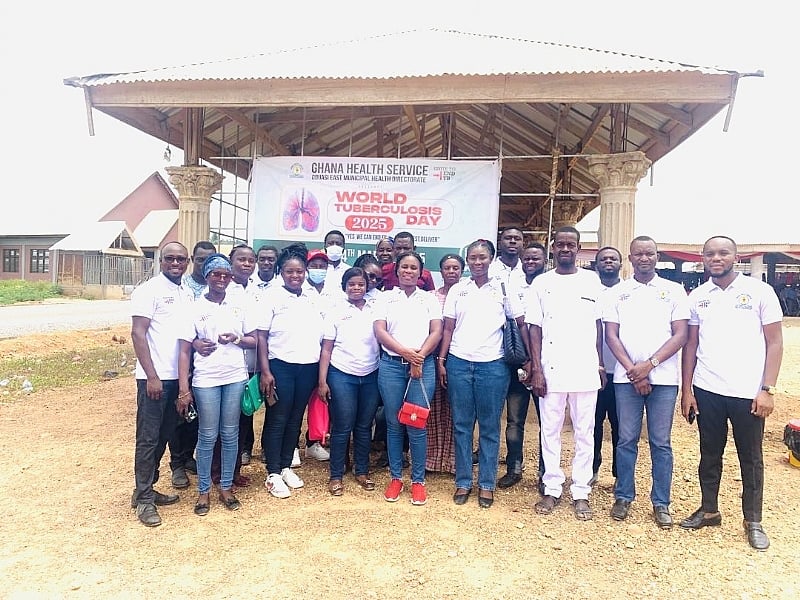Tuberculosis (TB), a bacterial infection primarily affecting the lungs but capable of impacting other organs, remains a significant global health concern, especially in low- and middle-income countries. World TB Day, observed annually on March 24th, serves as a platform to raise public awareness about the devastating health, social, and economic consequences of this disease and to galvanize global efforts towards its eradication. The 2025 World TB Day, themed “YES WE CAN END TB: COMMIT, INVEST, DELIVER,” underscores the critical need for strengthened collaboration and increased investment in TB control programs. This theme resonates with the ongoing global efforts to achieve the ambitious goal of ending TB by 2030, as outlined in the End TB Strategy by the World Health Organization.
The Obuasi East Municipal Health Directorate in Ghana commemorated World TB Day 2025 with a series of impactful activities in Mampamhwe. These activities included free health screenings, offering community members crucial access to early diagnosis, and targeted public education initiatives focused on TB and related diseases. This proactive approach reflects the Directorate’s commitment to community engagement and its recognition of the importance of grassroots mobilization in the fight against TB. The choice of Mampamhwe as the location for these activities highlights the importance of reaching out to potentially vulnerable communities and ensuring equitable access to healthcare services.
Charity Afrifa-Adjei, the Municipal Health Director, delivered a powerful message emphasizing both the progress made and the challenges that remain in tackling TB within the municipality. While acknowledging the persistent hurdles, she highlighted the significant strides made in reducing TB cases through various interventions. These include public awareness campaigns conducted through radio broadcasts, community information centers, and mobile vans. Such multi-pronged approaches are crucial for reaching diverse segments of the population and ensuring that information about TB prevention, symptoms, and treatment reaches even the most remote communities.
Afrifa-Adjei underscored the global success rate in TB treatment, estimated at 85%, highlighting the effectiveness of early diagnosis and consistent treatment regimens. This statistic serves as a powerful motivator, demonstrating that TB is curable and emphasizing the importance of seeking timely medical attention. She stressed the continued need for collaborative efforts to address the remaining challenges, particularly among high-risk populations, and reiterated the importance of ensuring universal access to TB diagnosis, treatment, and care. This commitment to equitable healthcare access aligns with the global push to leave no one behind in the fight against TB.
The call for public engagement in the fight against TB formed a central theme of the World TB Day commemoration. Afrifa-Adjei urged individuals to contribute to raising awareness, promoting prevention and care, and supporting those affected by the disease. Community participation is vital for breaking down stigma surrounding TB, encouraging early diagnosis, and ensuring adherence to treatment. By fostering a sense of shared responsibility, the Directorate aims to empower communities to actively participate in TB control efforts.
Samuel Aboagye, the Assembly Member for Mampamhwe, expressed sincere gratitude to the Health Directorate for bringing the World TB Day activities to his community. He commended the outreach programs, free screenings, and distribution of educational materials, recognizing them as concrete demonstrations of the Directorate’s commitment to the community’s health and well-being. His words reflect the positive impact of these initiatives on the community and the appreciation for the accessible healthcare services provided. The collaboration between the local government and the health authorities is crucial for the effective implementation of TB control programs and ensuring that resources reach those who need them most. This partnership strengthens the community’s capacity to address health challenges and contributes to building a healthier future for all.


